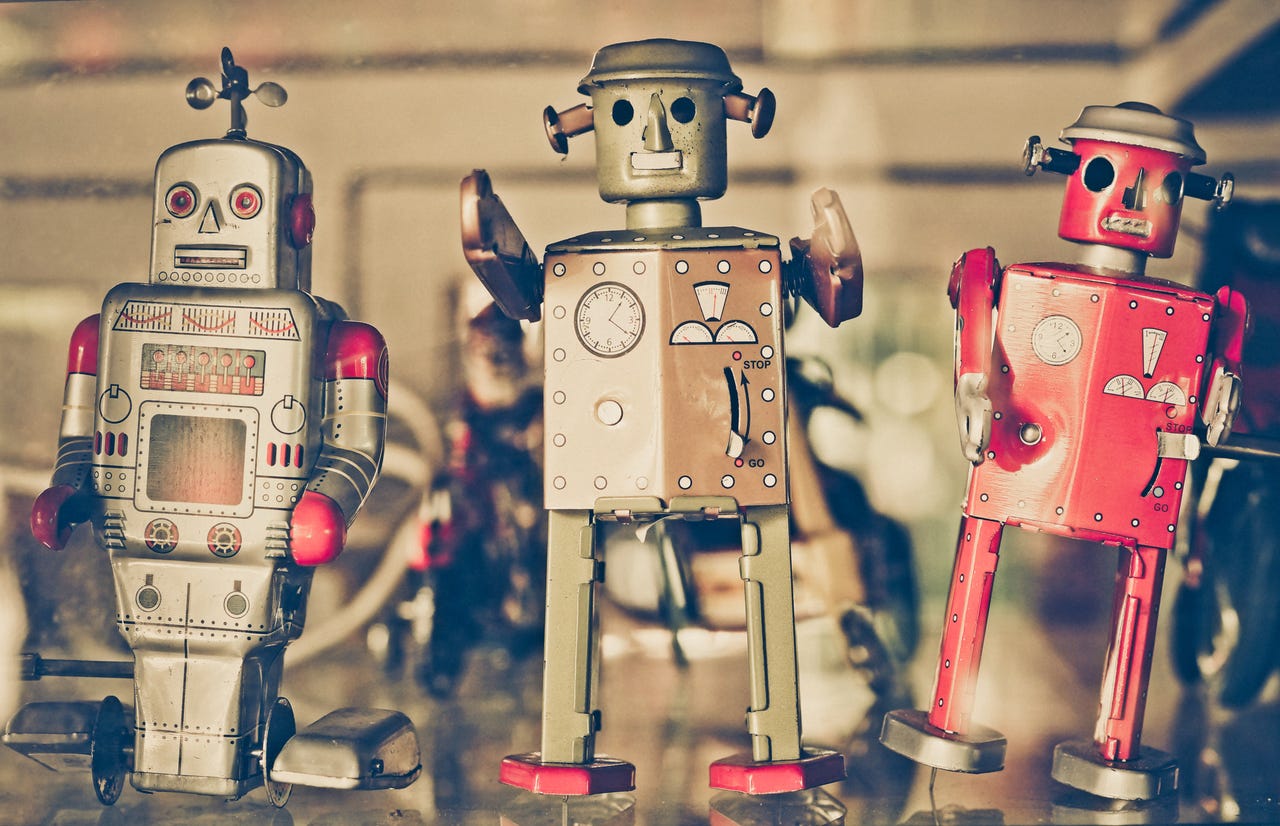Jeremy Corbyn wants to tax robots and their greedy overlords


"We won't reap the full rewards of these great technological advances if they're monopolised to pile up profits for a few," says Labour leader Jeremy Corbyn
Labour Party leader Jeremy Corbyn has warned that more needs to be done to deal with the challenges of robots and automation.
In his speech to the Labour Party conference today, he said there was an urgent need for the country to face the challenge of automation and robotics "that could make so much of contemporary work redundant".
He told the conference: "That is a threat in the hands of the greedy, but it's a huge opportunity if it's managed in the interests of society as a whole. We won't reap the full rewards of these great technological advances if they're monopolised to pile up profits for a few."
Corbyn said that if the rewards of automation were "publicly managed" to share the benefits more broadly this could provide "the gateway for a new settlement between work and leisure. A springboard for expanded creativity and culture".
While technology has always destroyed some jobs, it has tended to create more as a result. But some experts and academics warn that the rise of artificial intelligence may be different: first, by automating potentially what were seen to be safe middle class jobs; and second, by doing little to create many more new jobs in its wake.
However, one obstacle to Corbyn's plan is that it would be extremely hard to isolate the profits that result solely from automation and robotics, in order for those returns be to taxed, even if this did allow for a fairer redistribution of the benefits. But he also said that re-training must be a priority for government too.
He said: "The tide of automation and technological change means re-training and management of the workforce must be centre-stage in the coming years."
His comments echo the findings of a report from the UK's Trade Union Congress earlier this month, which found productivity gains from technology tend to go to business owners in the form of profit, and are not shared with workers in better wages and working conditions.
It wants the looming wave of AI productivity gains to be handled differently than the huge industrial changes of the 1970s and 80s, which left communities traumatised and with few opportunities.
With robotics and AI-powered productivity gains likely over the next couple of decades, the TUC said more needs to be done to limit disruption to working people's lives, and to maximise opportunities for working people to benefit.
It said income gains from higher productivity could be used to stop planned increases in the state pension age, and called for a right to a "mid-life career review" and new investment in workplace training.
"Previous technological revolutions have not seen a decline in the number of jobs. But they have seen a reduction in total hours worked. One potential benefit of technological change that should be embraced is its ability to improve the quality of working life," the report said.
It's not clear quite what the impact of AI and robotics on jobs is likely to be. Some estimates suggest that up to a third of jobs could be automated, however there are likely to be new jobs created as well.
While some workers may see their productivity and wages improve as a result of AI and automation, workers with 'lower' skill levels could see their jobs change or disappear, and even fiercer competition for the few remaining jobs available may push wages down even further.
Previous and related coverage
Automation by the numbers: Record-breaking year for sales of robots, components
New research puts hard numbers behind the staggering growth of automation in recent months
Special Feature: AI, Automation, and Tech Jobs
There are some things that machines are simply better at doing than humans, but humans still have plenty going for them.